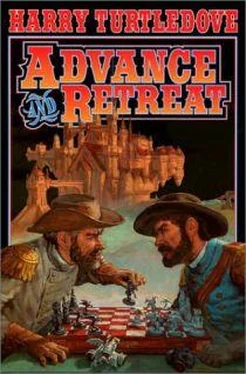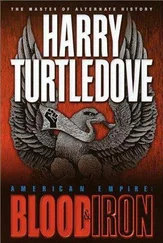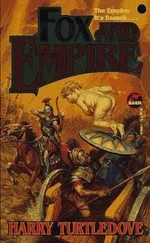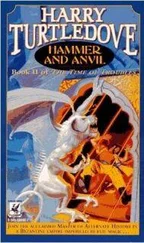Both forces had lost a few men, seen a few men hurt. The little fight wouldn’t change how the war turned out, not in the least. He wondered why either side had bothered making it. You could, if you had the right sort of mind, then wonder if even a big battle meant much in the grand scheme of things. Rollant didn’t have that sort of mind. He knew what those battles meant-serfs escaping from bondage who would still labor for their liege lords if southron armies hadn’t won and given them hope and protected them when they fled.
Axes were still thudding into lumber when a messenger came up to the trenches from the direction of the Trumpeteth. Lieutenant Griff called, “Men, we’re to pull back from this line toward the river. The bridges are said to be ready to cross.” By the way he spoke, he had trouble believing it. He was very young, and he’d been callow when he joined the company. He’d seen a lot since then, as had the men he commanded.
Rollant certainly had trouble believing it, too. Turning to Smitty, he said, “What do you want to bet the traitors’ wizards will have sunk these so-called bridges by the time we get there?”
“You’re a corporal. You already make more money than I do,” Smitty said. “If you think I want to give you any of mine, you’re mad.”
“If you think I want to give you any of mine, you’re mad, Corporal ,” Sergeant Joram growled. That Rollant was an underofficer counted for more with him than that he was a blond. Not all Detinans, even in the south, felt the same way.
When they got to the river, Smitty started to laugh. “I should have taken you up on that one, your Corporalship,” he said.
“Yes.” Rollant tried to hide his astonishment. The bridges-which, by their faint glow, seemed compounded more of magecraft than of mere material things-did indeed stand. Men were already tramping over them toward the south bank of the Trumpeteth.
A scrawny young mage in a gray robe stood on the north bank of the river. He looked weary unto death. Even as Rollant watched, the mage swayed-he supposed under yet another sorcerous assault from the northern wizards. But, though the mage swayed, the bridges held. They didn’t suddenly vanish and pitch the burdened soldiers on them into the Trumpeteth, where those men would without a doubt have drowned.
Seeing others safely cross the river, Rollant didn’t hesitate when his turn came. He held the company standard high as he set foot on the bridge. It felt solid under his shoes, even if it was mostly magical. How it felt was all that mattered. If he let out a sigh of relief when he got to the far bank of the river-well, if he did, maybe nobody noticed. And if anybody did, he wasn’t the only one.
* * *
Ned of the Forest rode his unicorn up to the southern bank of the Trumpeteth River. He actually rode the great white beast into the river; muddy water swirled around its forelegs. Turning to Colonel Biffle, he said, “Well, Biff, they slid through our fingers. They might have been greased, the way they slipped by us.”
“’Fraid you’re right, sir,” Biffle agreed mournfully.
“And look at what’s left of this here bridge.” Ned pointed. Only a few wooden pilings emerged from the Trumpeteth. “Look at it, I tell you.”
“Not much to look at,” his regimental commander said.
“Sure isn’t,” Ned said. “Sure as hells isn’t. And it doesn’t look like the stinking southrons burned their bridges once they’d used ’em, either. They couldn’t have, by the Thunderer’s lightning bolt-we’d’ve seen the flames. No way on earth they could’ve hidden those from us.”
“You’re right again, sir,” Colonel Biffle said.
“And what does that mean? There’s hardly a thing left here, but the southrons didn’t burn what there was.” Ned made a harsh, chopping gesture with his left hand. He couldn’t have been more disgusted if he’d heard Thraxton the Braggart was returning to command in the Army of Franklin. He shook his head. No, on second thought, he could.
Biffle said, “It means they used magic to get over the river. It can’t mean anything else.”
“You’re right. You’re just exactly right. That’s what it means.” Ned of the Forest repeated that chopping gesture. “And how did they get away with using magic to build their miserable bridge when we’re supposed to have the best wizards in Detina? How, Biff? Riddle me that.”
“Either they’ve got themselves some good ones from somewhere, or else ours aren’t as good as they’ve been telling folks they are,” Biffle said. “Maybe both.”
Both hadn’t occurred to Ned. When Colonel Biffle suggested it, though, it made entirely too much sense to him. “Wouldn’t be a bit surprised,” he said. “But it’s purely a shame and a disgrace, that’s what it is. The southrons have got more men than we do. They’ve got more of just about everything than we do, except grit and wizards. If they start licking us when it comes to magecraft… Well, Lion God’s tail tuft, Biff, why keep on fighting in that case? We’re whipped, grit or no grit.”
“Yes, sir,” Biffle said. “But what can we do about it? Us unicorn-riders, I mean.”
“Not much,” Ned said morosely. “Still and all, I’m going to hash it out with Lieutenant General Bell. Maybe he knows something I don’t. Or maybe he’ll give me some laudanum. Then I won’t care any more, either.”
“Lieutenant General Bell’s doing the best he can,” Biffle said. “If he didn’t have something to hold back the pain, he’d be hard up.”
“Oh, I know that, Biff,” Ned answered. “I really do. He’s not like Thraxton the Braggart, that cowardly, conniving, shriveled-up little unicorn turd of a man. Bell does try hard, and he’s a good fighter himself-or he was, before he got ruined. I don’t reckon it was his fault this army didn’t lay into the southrons at Summer Mountain. By the way he carried on, he gave the right orders, but the fellows under him didn’t do what he told ’em to.”
“By the way they carried on, his orders weren’t as good as he said they were,” Colonel Biffle replied.
That was also true, and worried Ned of the Forest. It reminded him much too much of how things had been during the unhappy command of Thraxton the Braggart. Ned tugged on the reins, jerking his unicorn’s head around. He gave Biffle a few orders, then got the beast moving with the pressure of his knees and rode off toward the north, toward the main encampment of the Army of Franklin.
Lieutenant General Bell’s pavilion was at least twice the size of any other officer’s tent there, and dwarfed the miserable little shelters under which some of Bell’s soldiers slept. The rest of Bell’s men had no shelter at all. True, Bell was the commander of the army. True, his wound might have made him need more space-or be happy with more space-than a whole officer required. Even so…
Trying to hold in his unease, Ned announced himself to the sentries in front of the commanding general’s pavilion. One of them ducked inside. He returned a moment later, saying, “Lieutenant General Bell will see you, sir.”
“He’d better,” Ned rumbled; the idea that Bell might not see him filled him with fury. He ducked through the tent flap and into the pavilion.
His eyes needed a moment to adjust to the gloom inside. Bell sat in a folding chair. As Ned came in, the general commanding put a small bottle back into a leather pouch at his belt. “Good day, Lieutenant General,” Bell said, licking his lips. “And what can I do for you?”
Ned peered at him before answering. Once upon a time, people had spoken of Bell as the reincarnation of the Lion God on earth. These days, those leonine features might have been carved in cold butter that was then set in front of a fire. His face sagged. He had great dark bags under his eyes. His cheeks drooped. Even through Bell’s thick beard, Ned could see how jowly he’d become. The commander of unicorn-riders shivered. Pain and forced inactivity did dreadful things to a man.
Читать дальше












